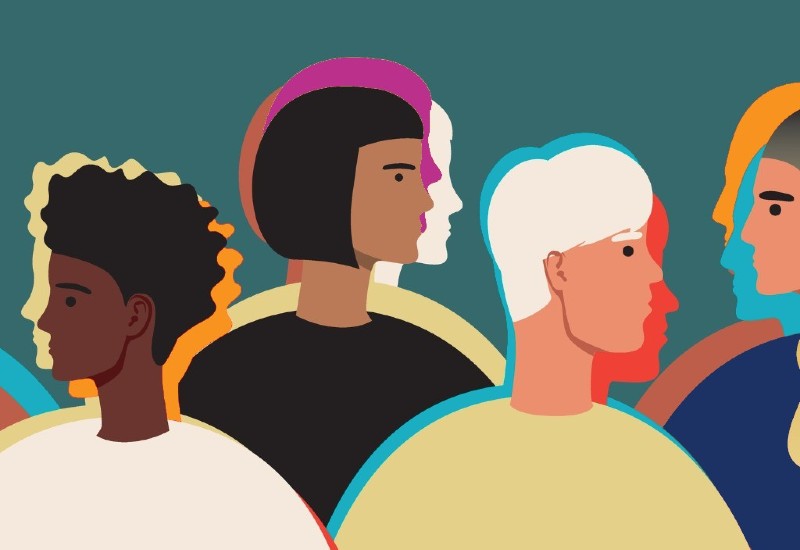The 19th Century English poet Rudyard Kipling once wrote, “For the strength of the pack is the wolf, and the strength of the wolf is the pack.” This seemingly paradoxical statement is exactly what group therapy is all about. It is about unity, understanding, and the unbridled honesty of shared experience.
There is a maxim that can often be heard in 12-Step recovery meetings. It goes, “We’re going to love you until you learn to love yourself.” Again, the embodiment of group therapy. The cyclical idea of love and service.
While it is certainly not the only treatment modality for mental health disorders, group therapy can be highly beneficial when incorporated into a customized recovery plan. The recovery plan must always be customized to the individual. Because just as no two people are alike, no two struggles are alike. Thus, no two mental health treatment plans should be alike.
What Exactly Is Group Therapy for Mental Health Treatment?
The distilled definition of “group therapy” is exactly what its name suggests. Group therapy involves multiple individuals with a shared experience working in unison with a healthcare professional.
However, more important than the basic definition of what group therapy is, is what group therapy can offer. According to “Group Therapy” by Akshay Malhotra and Jeff Baker, there are several key benefits to this recovery modality. Some of these include, but are not limited to:
- The ability for individuals to relate and identify with people “who share similar thoughts, feelings, and issues”
- Gaining a sense of hope through witnessing the success of others that are ahead of them in their recovery journey
- The ability to experience “altruism” by assisting other individuals that are struggling
- Experiencing “catharsis” by getting to open up to others in a safe and understanding space
- Feeling supported when times in recovery become difficult or feel unmanageable
- Acquiring new or relearning necessary social and life skills
It is also critical to understand that group therapy is not the only option for mental health recovery. It is recommended that it be incorporated into a recovery plan rather than used solely.
How Does Group Therapy Fit Into a Mental Health Treatment Plan?
Customizing a treatment plan based on an individual assessment can be crucial for achieving the most well-rounded recovery. There is no “one-size-fits-all,” “quick fix” recovery model for issues of mental health. Yet many treatment centers will box people into a set plan. This can often be ineffective.
There are many treatment options when it comes to treating issues of mental health, of which group therapy is just one. There is also individual therapy and psychotherapy, such as cognitive-behavioral therapy (CBT), dialectical behavior therapy (DBT), and nutrition therapy (primarily for eating disorders). There are also neuroscientific approaches, such as eye movement desensitization and reprocessing therapy (EMDR). Holistic practices can also be great supplemental recovery options to an evidence-based eating recovery plan. These practices may include yoga, breathwork exercises, and meditation.
However, most of those treatment options are conducted on an individual basis. But healing does not happen in isolation, especially for individuals struggling with issues of mental health. People that struggle with a debilitating mental health disorder often isolate themselves to conceal the struggles that they are going through. This is why group therapy can be so important. It can break the hold that isolation often holds.
Creating a Plan for Long-Term Recovery
Kipling also once said, “Never look backward, or you’ll fall down the stairs.” This is what long-term recovery is all about. It is all about forward momentum. Therefore a treatment plan should always have long-term goals in mind at the start.
There is another often-heard maxim in the 12-Step community that states that we should always live “one day at a time.” This is, of course, a paradox because we live those individual 24 hours toward the goal of recovery. The thing about paradoxes in recovery is they often work. They work even better when they are explained and exemplified by others in group therapy.
Many mental health disorders, such as substance use disorder (SUD), obsessive-compulsive disorder (OCD), and eating disorders (EDs), are “chronic” disorders. As with other chronic diagnoses, there is a potential for relapse. However, that doesn’t mean that a relapse ever has to be a part of the recovery story. Relapse may or may not occur, and that’s okay because recovery over relapse is the ultimate goal. This is also why creating a comprehensive plan with long-term goals in sight is paramount.
Mental health treatment is a journey. It can be one of the most intense journeys an individual ever takes. However, it can also be one of the most rewarding. It is also a journey that no one should ever have to take alone. With group therapy, they’ll never have to.
THE ROAD TO WELLNESS STARTS BY SEEKING HELP. TODAY.
Built on the principles of assertive community treatment, Galen Hope is an eating disorder and mental health treatment center offering individualized treatment options that include Intensive Outpatient (IOP), supported housing, and Partial Hospitalization Programs (PHP). As a “Community of Integrated Wellness,” we pride ourselves in fostering a thoughtful and meaningful care experience that can guide our clients on their road to recovery and increased quality of life, regardless of diagnosis. Galen Hope currently offers separate, age-specific programming for adolescents ages 12-17 and adults 18 and up of all genders. To learn more or to join our community for integrated wellness, please contact us today at (888) 592-1817.
Belong. Heal. Grow.

